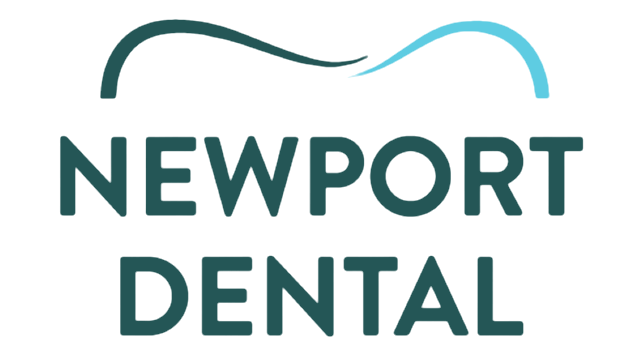
Regular dental check-ups play a vital role in maintaining optimal oral health and preventing serious dental issues. Through a comprehensive oral examination, dental professionals can detect and address potential problems before they develop into more significant concerns.
Maintaining good oral health requires more than just daily brushing and flossing. A professional oral examination serves as a cornerstone of preventive dental care, allowing dentists to monitor changes in oral health, provide early interventions, and help patients develop effective oral hygiene routines.
Understanding Oral Examinations
An oral examination is a systematic evaluation of a patient’s oral cavity, teeth, gums, and surrounding structures performed by a qualified dental professional. During this comprehensive assessment, dentists examine various aspects of oral health to detect potential issues, monitor existing conditions, and develop appropriate treatment plans. A regular oral examination helps establish a baseline for oral health and track changes over time.
4 Common Types of Oral Examinations
- Comprehensive Initial Examination: A thorough evaluation performed during a patient’s first visit or after a long absence from dental care. Includes detailed charting of existing dental work, thorough medical history review, and comprehensive oral cancer screening.
- Periodic Check-up Examination: Routine follow-up examinations are typically conducted every 6-12 months to monitor oral health and track any changes since the previous visit.
- Limited/Emergency Examination: Focused evaluation addressing specific concerns or dental emergencies, concentrating on particular areas of pain or discomfort.
- Periodontal Examination: Specialized assessment focusing on gum health, measuring pocket depths, and evaluating bone loss around teeth.
6 Common Conditions Detected with a Comprehensive Examination
Dental Cavities
Dental cavities represent one of the most common oral health issues identified during examinations. These areas of tooth decay occur when bacteria produce acids that erode tooth enamel, creating holes in the teeth. Early detection through a regular oral examination allows for minimally invasive treatments and prevents extensive damage to the tooth structure.
Gum Disease
Periodontal disease encompasses various stages of gum inflammation and infection, from mild gingivitis to severe periodontitis. During an oral examination, dental professionals assess gum health by checking for redness, swelling, bleeding, and measuring the depth of periodontal pockets. Early intervention can prevent tooth loss and other serious complications.
Oral Cancer
Oral cancer screenings are a crucial component of comprehensive examinations. Dentists examine the soft tissues of the mouth, tongue, and throat for any suspicious lesions, lumps, or color changes that might indicate precancerous or cancerous conditions. Early detection significantly improves treatment outcomes for oral cancer patients.
Tooth Erosion
Dental professionals assess teeth for signs of erosion caused by acidic foods, beverages, or medical conditions like acid reflux. This wear on tooth enamel can lead to sensitivity and structural damage if left untreated. An oral examination helps identify erosion patterns and their underlying causes.
Bite Problems and Malocclusion
An oral examination includes an evaluation of how upper and lower teeth align when biting. Dentists check for malocclusion issues such as overbites, underbites, or crossbites that may require orthodontic intervention. Early detection of bite problems can prevent complications with chewing, speaking, and overall oral health.
Oral Infections
Dental professionals look for signs of various oral infections, including abscesses, fungal infections like thrush, and viral conditions such as herpes simplex. These conditions often require prompt treatment to prevent spread and alleviate discomfort. Regular oral examinations help identify infections in their early stages when they’re most manageable.
How Should You Prepare for an Oral Examination
- Update Medical History: Gather information about current medications, health conditions, and any changes since the last dental visit. Include details about allergies, surgeries, or new medical diagnoses that could impact dental treatment.
- Gather Insurance Information: Confirm dental insurance coverage and bring the necessary documentation to the appointment. This helps avoid any billing surprises and ensures smooth processing of claims.
- Clean Your Teeth Thoroughly: Brush and floss before the appointment, but maintain your regular oral hygiene routine. Avoid excessive cleaning that might irritate your gums and mask potential issues.
- List Your Concerns: Write down any specific dental issues, pain points, or changes you’ve noticed since your last visit. This ensures you don’t forget to discuss important concerns during the examination.
- Arrive Early: Plan to arrive 10-15 minutes before your scheduled appointment time. This allows time to complete any necessary paperwork and helps reduce anxiety.
6 Types of Questions You Should Ask Your Dentist
- What is my overall oral health status, and are there areas that need improvement?
- How can I modify my oral hygiene routine to better protect my teeth and gums?
- Are there specific dental products you recommend for my oral health needs?
- What are the signs of dental problems I should watch for between visits?
- How do my lifestyle habits (diet, smoking, etc.) affect my oral health?
- When should I schedule my next oral examination?
What Happens During an Oral Examination?
- Medical History Review: The dental team reviews your medical history and discusses any changes or concerns. This information helps ensure safe and appropriate dental care.
- Visual Examination: The dentist examines your teeth, gums, tongue, and oral tissues using special lighting and dental mirrors. They look for signs of decay, gum disease, or other oral health issues.
- Digital Imaging: Dental X-rays or other imaging techniques may be performed to detect hidden dental problems. These images help identify issues beneath the surface that aren’t visible during visual inspection.
- Periodontal Screening: The dentist measures gum pocket depths and checks for signs of gum disease. This assessment helps determine gum health and identify areas requiring additional attention.
- Oral Cancer Screening: The dental professional examines soft tissues for any suspicious changes or growths. This crucial step helps detect potential signs of oral cancer early.
- Treatment Planning: Based on findings, the dentist discusses any necessary treatments and develops a care plan. They explain options and answer questions about recommended procedures.
When Should You Schedule Your Oral Examination
Regular oral examinations serve as the foundation for maintaining good oral health throughout life. These check-ups allow dental professionals to monitor changes, detect problems early, and provide preventive care that can save time, money, and discomfort in the long run. Consistent examinations also help establish a strong relationship with your dental care provider, leading to more personalized and effective treatment plans.
Frequency Recommendations by Age Group
- Children (0-3 years): First oral examination should occur by age 1 or within 6 months of first tooth eruption. Subsequent visits every 6 months help monitor dental development and establish good oral health habits.
- Children and Teens (4-17 years): Bi-annual oral examinations are recommended to monitor tooth development, check for cavities, and assess orthodontic needs. More frequent visits may be needed for those with braces or other dental appliances.
- Adults (18-64 years): Schedule oral examinations every 6 months for routine care. Those with specific dental conditions or high-risk factors may need more frequent check-ups.
- Seniors (65+ years): Continue with bi-annual examinations, but some may need more frequent visits due to medication effects, dry mouth, or other age-related oral health concerns.
- High-Risk Patients: People with diabetes, weakened immune systems, or a history of gum disease may need oral examinations every 3-4 months for closer monitoring.
Conclusion
Regular oral examinations are essential for maintaining optimal dental health and preventing serious oral health issues. Through comprehensive check-ups, dental professionals can detect and address potential problems early, saving patients time, discomfort, and expensive treatments in the long run. These examinations serve as the cornerstone of preventive dental care, helping patients maintain healthy smiles for life.
Ready to prioritize your oral health? Schedule your next oral examination with the experienced team at Newport Dental. Our skilled dental professionals are committed to providing comprehensive, gentle care tailored to your needs. Visit our Facebook page for educational content and oral health tips, and check out our stellar reviews on Yelp to see why our patients trust us with their dental care. Contact us today to book your appointment and take the first step toward optimal oral health.

